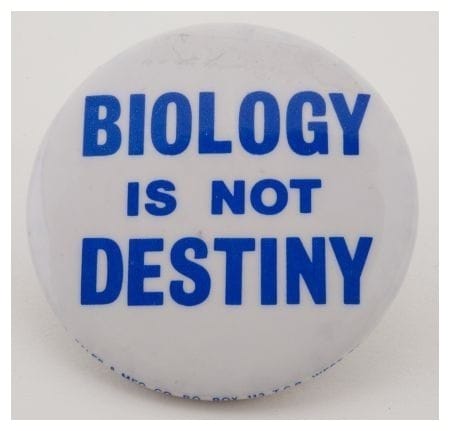Trans Allies and the Society of the Spectacle
[cautious criticism of allies]
[cautious criticism of allies]
There’s something concerning to me about the meteoric rise of a trans parents' charity, and I’d like to be very clear from the start that this post is not intended to bash them like so many have already for their important work providing parents with the necessary resources and information to raise happy, well-adjusted trans children denied to them by a society that would, in general, rather that trans people simply ceased to exist.
Instead, my concern is the growth of their presence representing trans interests in general while trans run & led organisations have been pushed to the margins of the deepening moral crisis around trans liberation in Britain (and to some extent the wider English speaking world).
Alongside this is a growing celebrity around cis tweeters and leftubers who have supported trans people in many cases for their courageous and persistent support. Trans people are rapidly approaching marginalisation in a renaissance of the sort of ineffectual allyship that created charity singles in the 1980s, telethon culture in the early 90s, and ongoing pity parades.
In my understanding, the reason for this happening is that it’s exhilarating for all involved to be part of a seemingly historic social event. This is particularly true for a young internet culture that’s still beginning to understand itself as being in possession of both a history and a culture at all, despite the blip in the 90s of theorists declaring that history was over). This takes the form of the spectacle of a bunch of (most prominently, quite privileged) supporters taking the opportunity to pose triumphantly in the face of systemic adversity over which many feel powerless. But the tendency is in general that groups run by (and consequently for) cis people on behalf of trans people tend to form and become far more successful than anything trans people are able to muster ourselves, following precisely the pattern that created disability charities like Scope and RNID and the enmity for them by the movement by disabled people for radical disabled liberation between the 80s and the 90s. This isn’t a personal fault of the cis people involved, but the result of their position, even as allies, as possessing a systemic power which trans people in our own respect do not.
I shared related concerns several years ago to Action for Trans Health who were (and still are) doing great work collecting and distributing funds mostly as an act of mutual aid among trans people alongside their advocacy work — my concern being that the real problem is that trans people are (mostly) in poverty and even those of us who are better off cannot possibly offset the scale at which we are collectively economically and politically marginalised. It could be argued that project became uncomfortably close to being an underfunded version of the gatekeepers we struggle against in the public health sector, redistributing health poverty instead of wealth*.
The fundamental issue is that charity, whether radically inspired or in the form of today’s internet celebrities writing soybek on their foreheads and eating a lump of raw tofu in an effort to maintain the otherworldly orgiastic feeling that Something👏Different👏Is👏Happening, cannot possibly change the situation of trans people in the UK in the long term.
As of the last several years, a mostly white and educated class of poor trans people have been regularly involved in a modern high class form of begging to fund treatment**, pay for food and rent or escape domestic violence in a system set against our well-being, and everyone less well off than them is relegated even further to the consequences of facing such difficulties head on in poverty. Many of us have just had to live without treatment that leaves us struggling with mental health issues, live with our abusers until we were able to move on later, have just become unable to pay rent and homeless, have gone hungry, have traded sex in some form or another for survival. Those are experiences common among trans people as they are among people who are marginalised and impoverished on any other basis, for which we have failed, so far, to really advance a solidly class, race, gender and ability conscious response to as a whole (not for lack of reading around intersectionality). Charity provides safety critical interventions in so many cases but the characteristic nature of charities is to preserve the systems of violence they are built to mitigate by addressing personal tragedy instead of systemic inequality.
This isn’t fundamentally about the intentions of our allies. Goodness knows we all need to feel like something can be done. There is a hopelessness, a feel good nihilism to all this which has always been incredibly popular on the internet (a space where so many of us are, often enthusiastically, alienated). It’s telling that this particular cultural incident started out as an attempt to troll the prolific transphobe, Graham Linehan (who as pointed out by Hbomb has 168k tweets to date, a frankly concerning rate of online engagement much of which is focused on spreading fear, uncertainty and doubt about risks relating to trans inclusion and liberation in society). Does it make any difference what a hack former comedy writer has to say about trans people? Why should his personal involvement in trying to campaign to get Mermaids refused funding be a better reason to try to fund an organisation for parents of trans kids than any other? What happens after this moment is over and Mermaids are suddenly better funded than any trans-run organisation in this country?
This is part of a wider cultural moment that has also given us the widely ridiculed absolute absurdity that is hopepunk.
The issue is that the opposite of surrendering to the hopeless inevitability of tyranny whether over trans issues or any other matter isn’t throwing money, time and energy at literally any project which rises into cultural significance on the other side of the struggle. The opposite is to organise, plan and implement the abolition of the tyranny that trans people (and others) face around gender and sexuality. There’s no spectacle to participate in big enough that it can change the way things are. We need to take matters into our own hands and make it happen instead.
Besides the power structures which continue to empower the already enfranchised, we are, collectively, alienated from each other and from effective means for struggle by our interactions as consumers and producers of media online. We should seek to instead, or at least also, become co-conspirators and collaborators plotting the downfall of oppressive restrictions. Internet cultural moments give us a common language and a common understanding for the struggle but we also need to get up and go beyond that or it ends up just being a side show that will be repeatedly resold to us.
*To be 100% clear, AfTH do a lot of other less visible work too, and I think the mutual aid fund is an important experiment in where the limits of this sort of activity could be pushed. This isn’t intended in any way as a condemnation of their hard work and attempts to create radical alternatives for trans people any more than this piece as a whole is a general attack on cis allies.
**Or as is sometimes alleged, are part of a system of people who may not be trans or homeless or fleeing violence at all and simply be privileged people involved in a grift making use of the prevailing good nature of cis people who have no useful means to help support others.


